7 Things Forcing Your Heating System to Work Harder – HVAC Pros Urge You to Fix Them Now
Tackling these will lower your utility bills, avoid larger and more costly repairs, and make your home's temperature more comfortable

Rebecca Shepherd
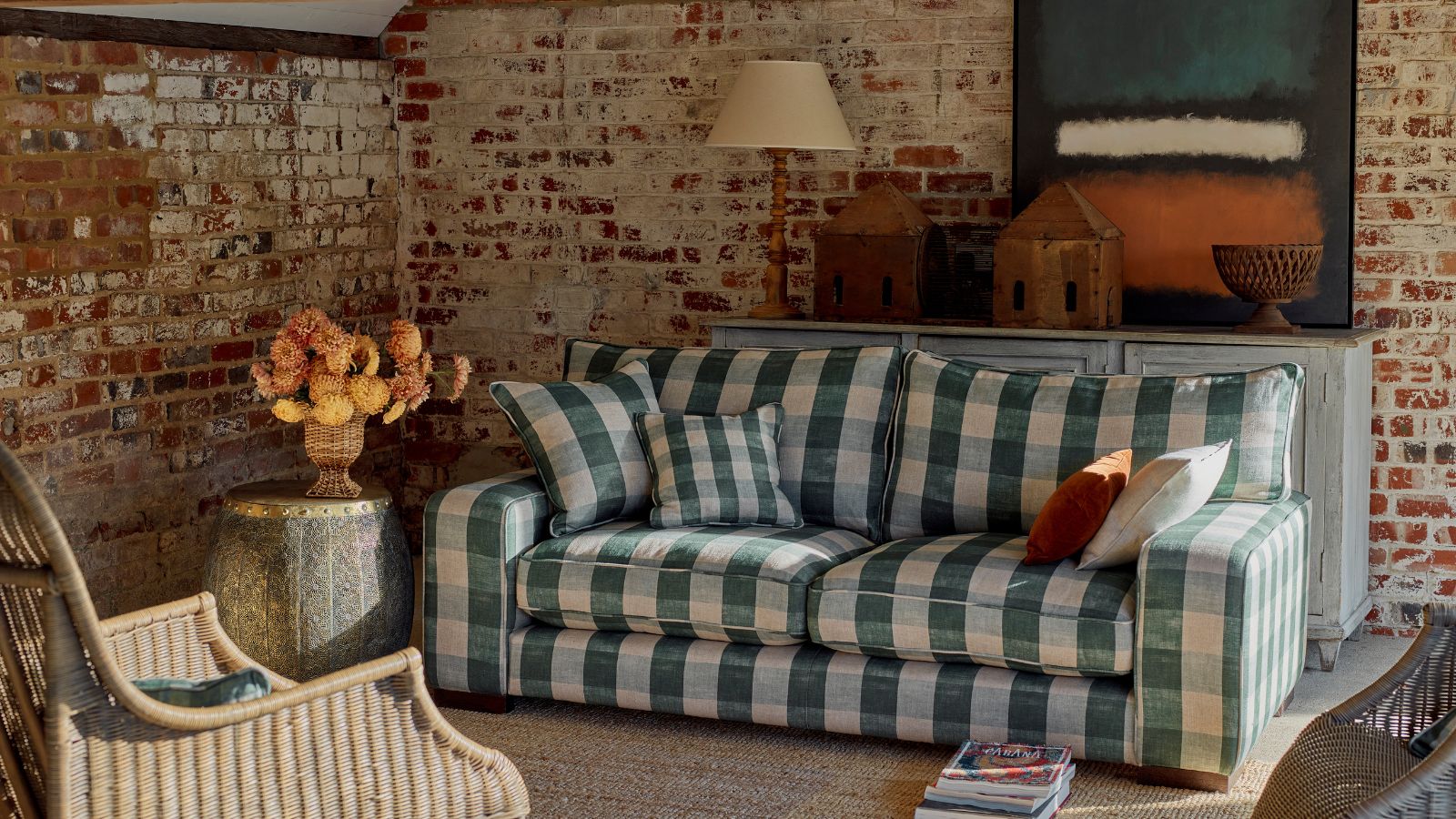
Design expertise in your inbox – from inspiring decorating ideas and beautiful celebrity homes to practical gardening advice and shopping round-ups.
You are now subscribed
Your newsletter sign-up was successful
Want to add more newsletters?

Twice a week
Homes&Gardens
The ultimate interior design resource from the world's leading experts - discover inspiring decorating ideas, color scheming know-how, garden inspiration and shopping expertise.

Once a week
In The Loop from Next In Design
Members of the Next in Design Circle will receive In the Loop, our weekly email filled with trade news, names to know and spotlight moments. Together we’re building a brighter design future.

Twice a week
Cucina
Whether you’re passionate about hosting exquisite dinners, experimenting with culinary trends, or perfecting your kitchen's design with timeless elegance and innovative functionality, this newsletter is here to inspire
Last year, our readers found this advice on improving home heating incredibly useful, so we’re bringing it back just in time for the coldest months of the season and inbound snowstorms hitting the US.
Our team has already been hit with a spate of broken boilers this month, and so have many people we know, highlighting just how hard heating systems have been working during these stretches of increasingly cold and extreme weather. When temperatures drop and winter storms put extra strain on boilers, the risk of breakdown rises, leaving families scrambling in a frozen house if small issues go unchecked.
If you’ve noticed that your utility bills have skyrocketed or that it’s taking longer than usual to warm your home, your heating system may be working harder than it needs to. From dirty filters to inadequate draft proofing, HVAC professionals say these are just a few of the most common oversights that can push your system into overdrive.
The Most Common Things Making Your Heating System Work Harder in Cold Snaps
To help you how to make your heating more efficient before problems escalate, we spoke to industry experts who shared the big and little factors that could be causing your system to work harder than necessary, along with quick fixes to keep your home warm and your energy bills under control.
1. Not Having the Right-Sized System for Your Home

Whether it is undersized, or too big, neither is good for your heating system in the long haul.
It’s no secret that the cost of heating a home has jumped sharply in 2025. But if you’ve been wondering why your heating is so expensive, there may be another factor at play: A heating system that’s the wrong size for your home.
One that's too large will heat rooms too quickly, making your home uncomfortably hot while wasting energy. A system that’s too small will run constantly to try to warm your space, driving up bills and shortening the life of your equipment.
With winter temperatures dipping lower than usual across much of the US right now, these mismatched systems are working harder than ever, putting extra strain on homes and heating budgets.
Design expertise in your inbox – from inspiring decorating ideas and beautiful celebrity homes to practical gardening advice and shopping round-ups.
There are many types of home heating, and the cost of replacing an HVAC unit depends on the system you remove and the one you install. In general, furnace prices can range from $4,000 to $7,000.
While there’s no escaping the cost of a replacement if your system is undersized, Simon Bernath, CEO and founder of FurnacePrices.ca, points out a more budget-friendly option. 'It’s difficult to address an undersized unit without replacing it,' he says. 'But improving your home’s insulation can help reduce the strain and make your system more efficient.'
2. Inadequate Insulation Leads to Extra Stress on Heating Systems
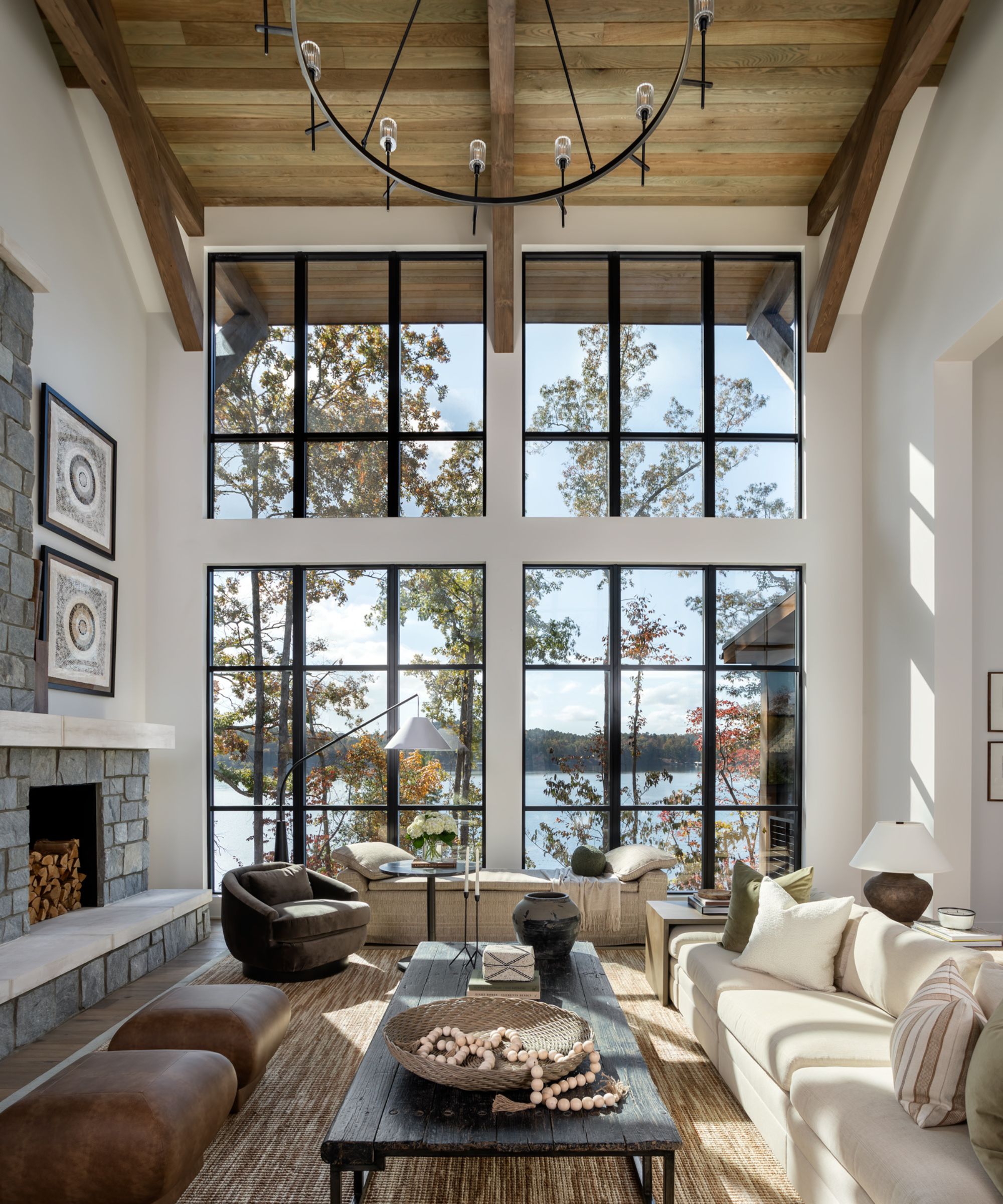
Heating will escape through doors, windows, walls and your roof if the proper insulation is not in place. This makes your heating system overwork and wears out components faster.
As temperatures drop and winter storms put extra strain on homes across the US, poor insulation through windows, doors, or roofs can force your heating system to work overtime.
Simon Bernath explains, 'Having inadequate air sealing, insulation, and windows can make an undersized unit even less effective,' which is why triple-pane windows are worth the investment.
This isn’t just expert opinion. A Research study by the US Department of Energy shows that 'heat gain and heat loss through windows account for 25%–30% of residential heating and cooling energy use.'
Upgrading to energy-efficient windows is one of the smart home improvements you can make this season to keep your home warmer, reduce energy bills, and avoid unnecessary strain on your heating system. The same goes for doors that prevent cold air from seeping in and trap heat inside.
While replacing windows can cost $300 or more per unit, there are smaller, budget-friendly options too. 'For older homes, DIY kits can improve air sealing, and plastic window kits can make a noticeable difference in winter,' Simon notes. Acting now can help prevent heating emergencies and keep your home comfortable throughout the cold months.
We have several expert guides on DIY draft-proofing that you may find helpful:
- Draft-proofing doors without ugly strips.
- Draft-proofing a living room.
- Draft-proofing a garage.
- Draft-proofing a kitchen.
- Draft-proofing a basement.
- Draft-proofing a bathroom.
- Draft-proofing a sunroom in winter.
- Draft-proofing an entryway.
- Weather-proofing windows.
- Places sneaky drafts hide in homes.
3. Poor Placement of Your Thermostat
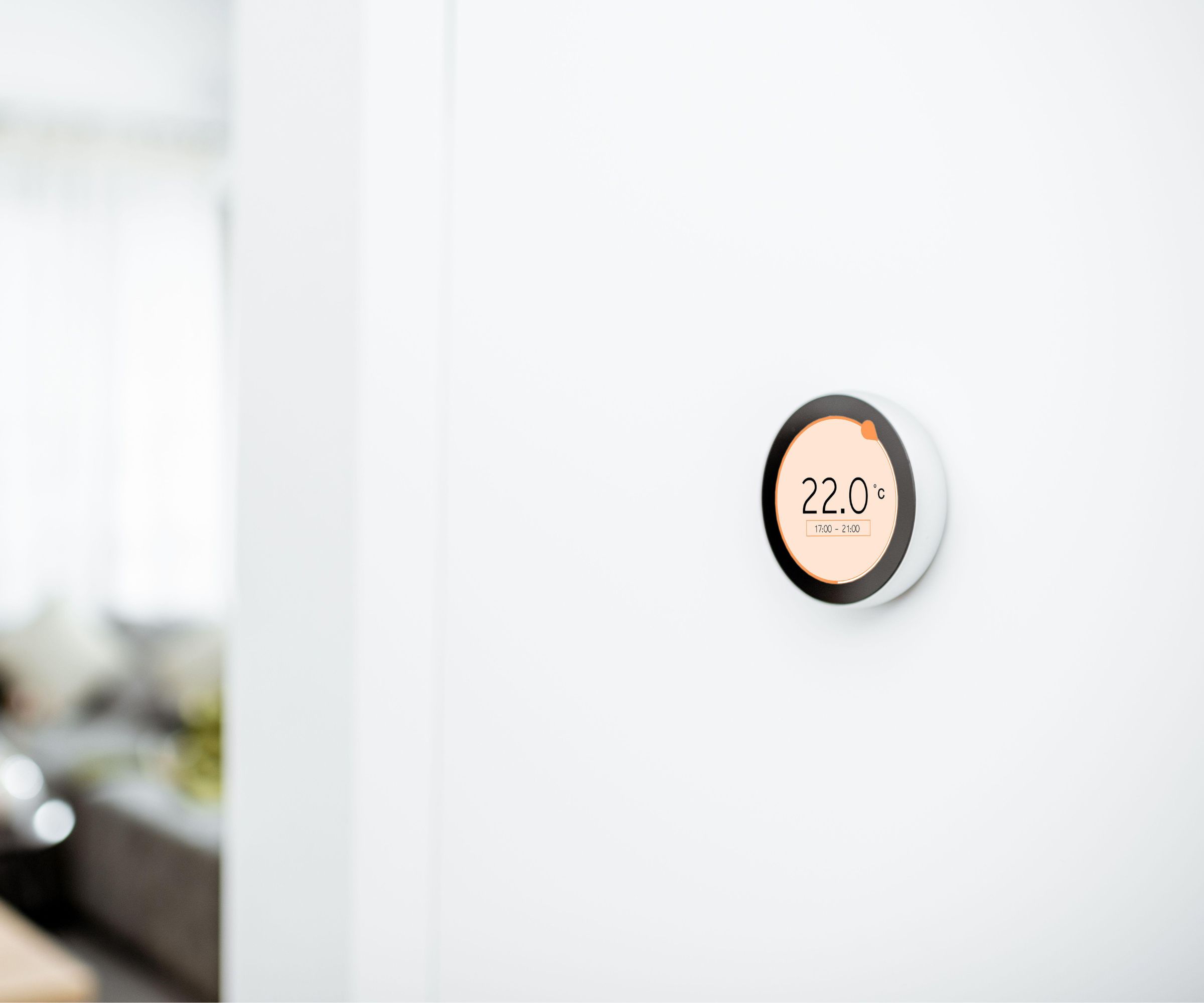
A smart thermostat will cycle your system on and off automatically, reducing strain on your system, stopping longer-than-necessary run times, lowering bills, and helping to maintain a constant temperature.
One of the most common thermostat mistakes homeowners make is installing it in the wrong spot. This is especially apparent during the colder months. Placing your thermostat near drafty windows, garages, exterior walls, directly under heating vents, or in direct sunlight can throw off your system’s efficiency.
I learned this the hardway, as our newly built home came loaded with a thermostat on an interior wall, but right next to the door that opened from our drafty entryway to the living room. I draft-proofed the doors with stick-on foam draft stoppers, available at Amazon, and also upgraded to a smart thermostat, which shaved 100s off my winter energy bills.
If your thermostat is near a cold draft, it may cause your heating to run longer than necessary, leaving your home uncomfortably hot in some areas and driving up energy bills. On the other hand, if it’s in direct sunlight, it can misread the temperature and leave your home cooler than you want. Eliminating these hot and cold spots starts with thermostat placement.
To keep your heating running efficiently this winter, experts recommend installing thermostats on an interior wall and away from any heat sources or drafts. This simple adjustment can help your home stay comfortably warm while reducing unnecessary energy use.
You can also leave behind outdated heating standards, which I tested in my home, for more comfort and lower bills, as well as stop enacting the heating myth of cranking your thermostat when the temperature drops outside. This will not heat your home any faster, and only puts pressure on your system.
4. Overlooking, Delaying or Forgetting Filter Changes
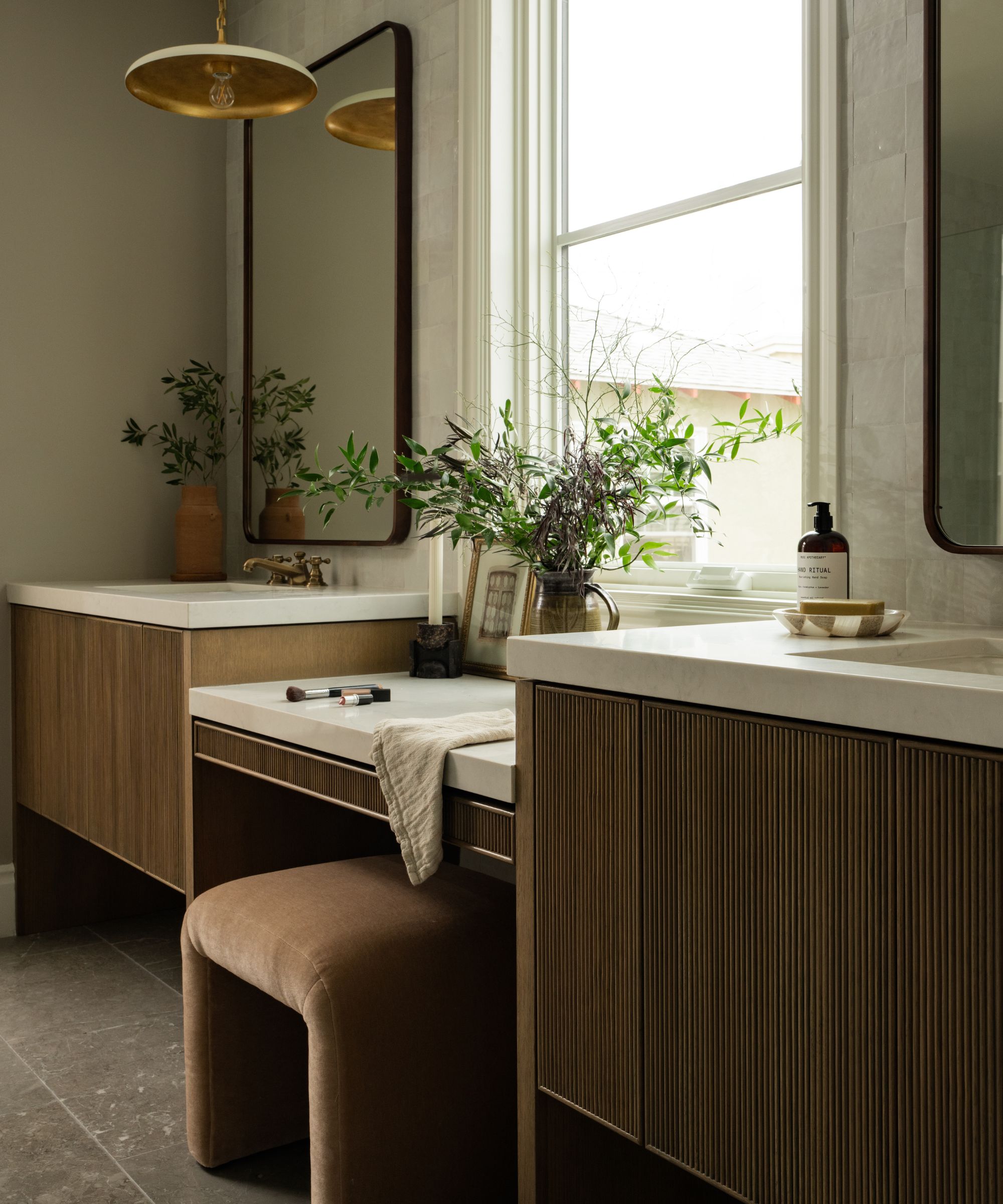
Skipping filter changes puts extra pressure on your system as it reduces efficiency.
When was the last time you checked and cleaned your air filter? With heating systems working overtime during colder-than-usual winter months across much of the US, keeping filters clean is more important than ever.
The good news is that filter maintenance is quick and simple, and it’s one of the most effective ways to keep your heating system running smoothly. The bad news is that neglecting it can increase your energy consumption and cause unnecessary wear and tear on your system.
‘Not changing your filter often enough forces your system to work harder to circulate air,' says Simon Bernath. How often you should check filters depends on your household, your heating and cooling usage, and manufacturer recommendations. Simon suggests checking every three months and replacing as needed. ‘This could be more frequent if you have pets or a particularly dusty home,’ he adds.
Marco Radocaj, owner of Balance HVAC, recommends checking filters every time you pay your electric bill. ‘If the filter looks more brown or black than white, it’s time for a replacement,' Marco notes.
With winter storms putting extra strain on heating systems, staying on top of your filters can help your home stay warm, energy bills manageable, and prevent breakdowns when you need heat the most. Neglecting your filters may also be why your home gets dusty so quickly.
5. Failing to Implement and Stick to a Maintenance Plan
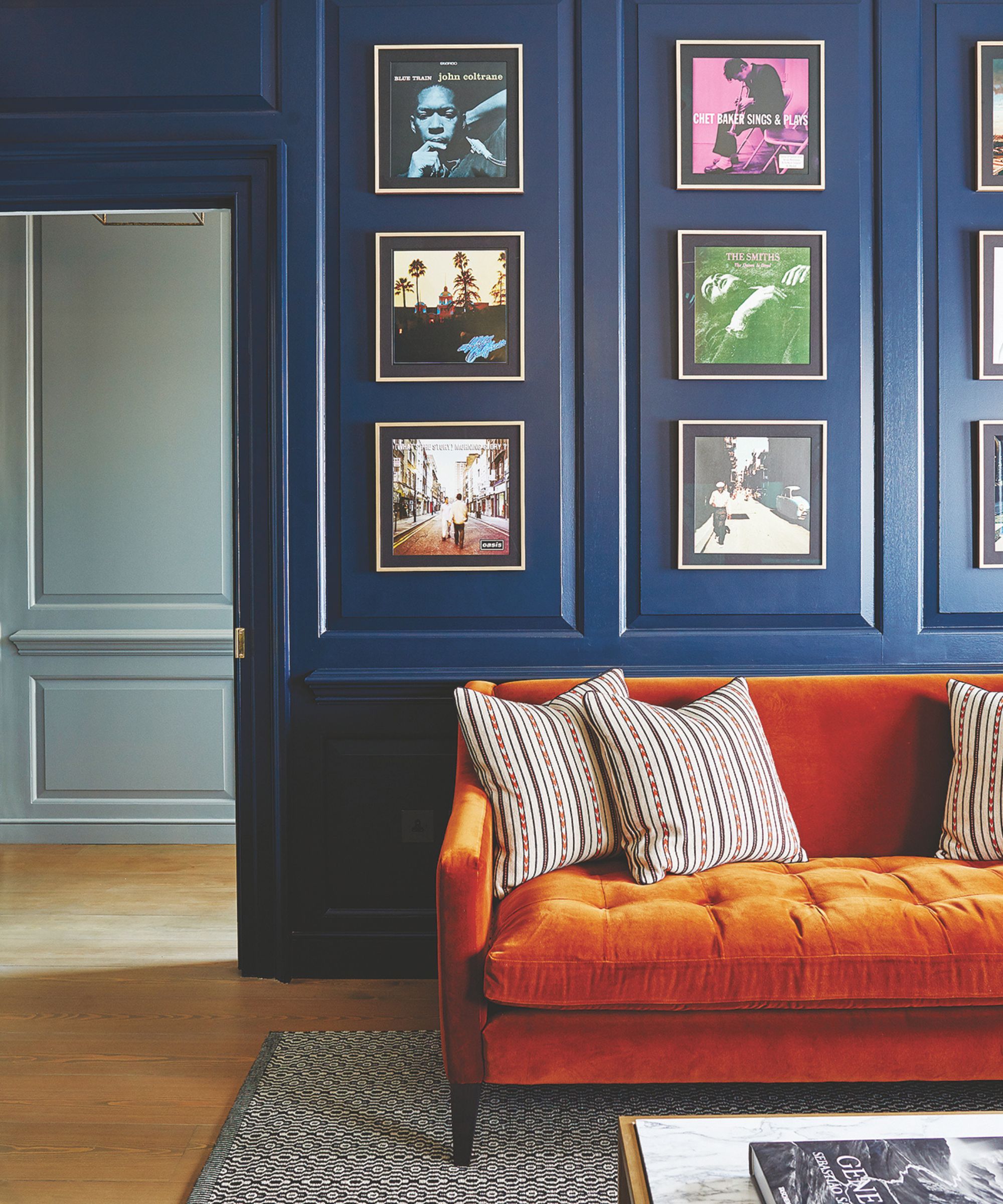
Keep all living areas warm and your system running well by keeping to a regular maintenance schedule.
Just like kitchen appliances, plumbing, and outdoor spaces, your heating system needs regular upkeep, especially during the winter months when it’s working hardest. Without routine maintenance, an HVAC system can lose efficiency over time, leading to higher energy bills and the need for replacement sooner than expected.
In most homes, a furnace lasting 10-20 years is considered standard, while the typical lifespan of a boiler is closer to 10-15 years. Rather than facing a costly replacement too early, paying for a professional tune-up once a year, or even twice if possible, can help your system run more efficiently and lower heating costs over time.
If your system is still in a warranty period (heat pumps, for example, often come with a robust seven-year warranty after installation), skipping annual servicing will likely invalidate that policy, meaning if something does go wrong, you'll have to pocket the cost.
‘Having a professional perform annual maintenance is a smart move, even for newer furnaces,’ Simon Bernath explains. ‘Extended warranties often require regular servicing to maintain full coverage, making maintenance an important step in protecting your investment.’
6. Blocking the Supply Registers

Move furniture away from vents and allow proper circulation.
If you’ve invested in one of the best home heating types, one of the simplest ways to protect that investment during the colder months is to keep vents and supply registers clear. When heating systems are running more frequently in winter, even small airflow issues can affect comfort and efficiency.
It's a heating myth that closing vents reduces energy bills, and it is not typically applicable to modern heating systems. It's a hangover from when homes had gravity-fed furnaces.
Marco adds, ‘In most heating-dominant climate zones, floor registers are used to deliver warm air into a space. These registers are typically placed on interior walls to encourage proper air mixing, since warm air naturally moves toward cooler areas.’
However, he notes that it’s very common for furniture like sofas, chairs, or tables to be placed too close to or directly over these registers, which is a heating mistake best avoided. ‘Blocking airflow warms the furniture instead of the room, leaving the rest of the space uncomfortably cold,’ Marco says.
Leaving moisture channels around large furniture also reduces the risk of mold.
7. Blocking Out the Sun
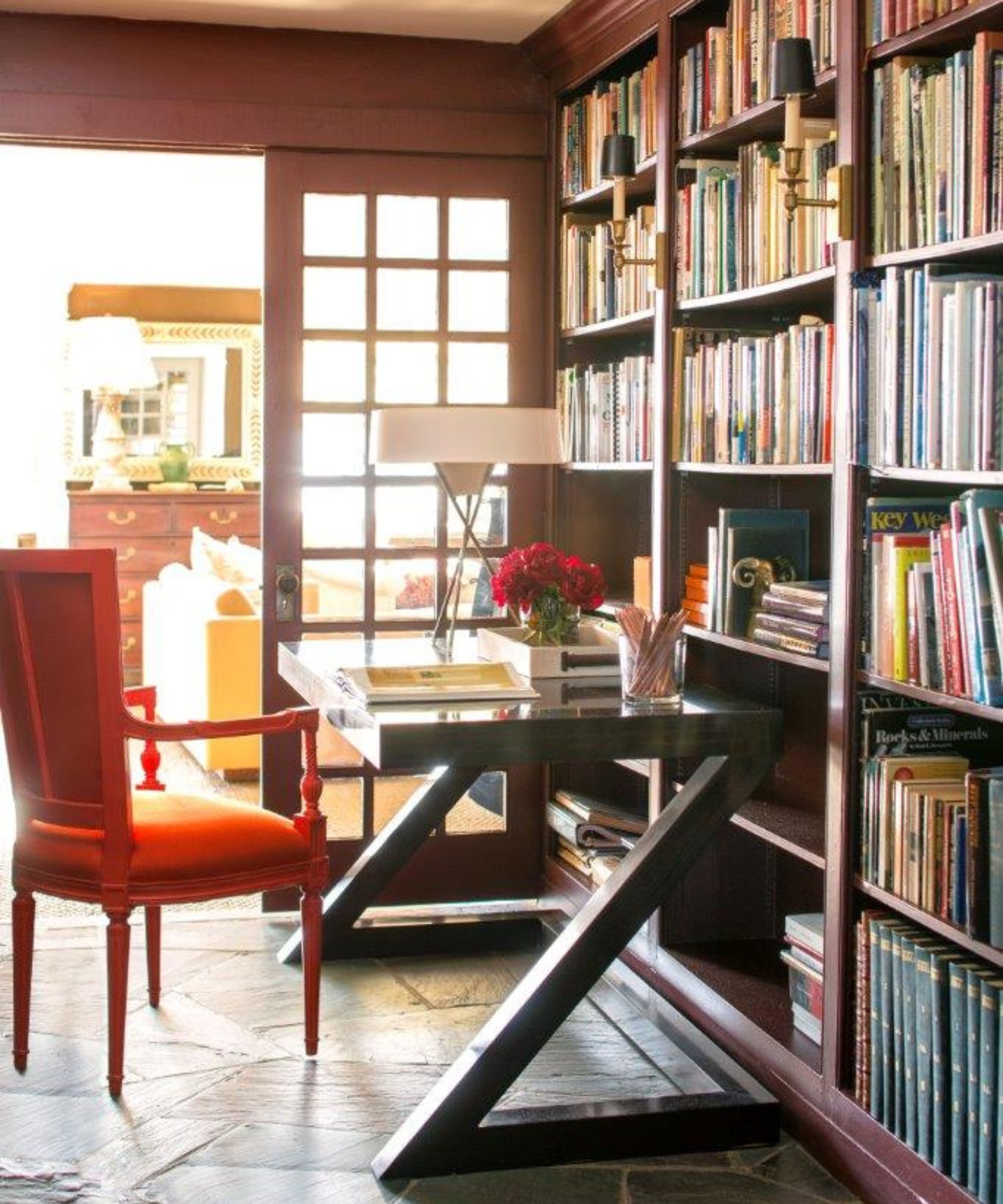
Take advantage of natural sunlight by keeping window treatments open in rooms with direct light.
If you live in an area with cold winters and warm summers, you might be overlooking a major source of heat – the sun.
'In the warmer months, it’s common to close curtains or blinds to block the sun’s glare and heat, especially from west-facing windows,' Marco notes. 'However, during the colder months, these same windows can become a valuable source of free heat.'
Therefore, a quick tip to stop your heating from working so hard is to open your window treatments during the day and allow sunlight to flood into your space. 'This will add a significant amount of warmth to your home naturally,' Marco notes. Which in turn will prevent your heating system from picking up all the slack.
If your boiler breaks down, however, once the sun has moved from the room, draw curtains and shutters to keep the ambient heat in.
What to Shop
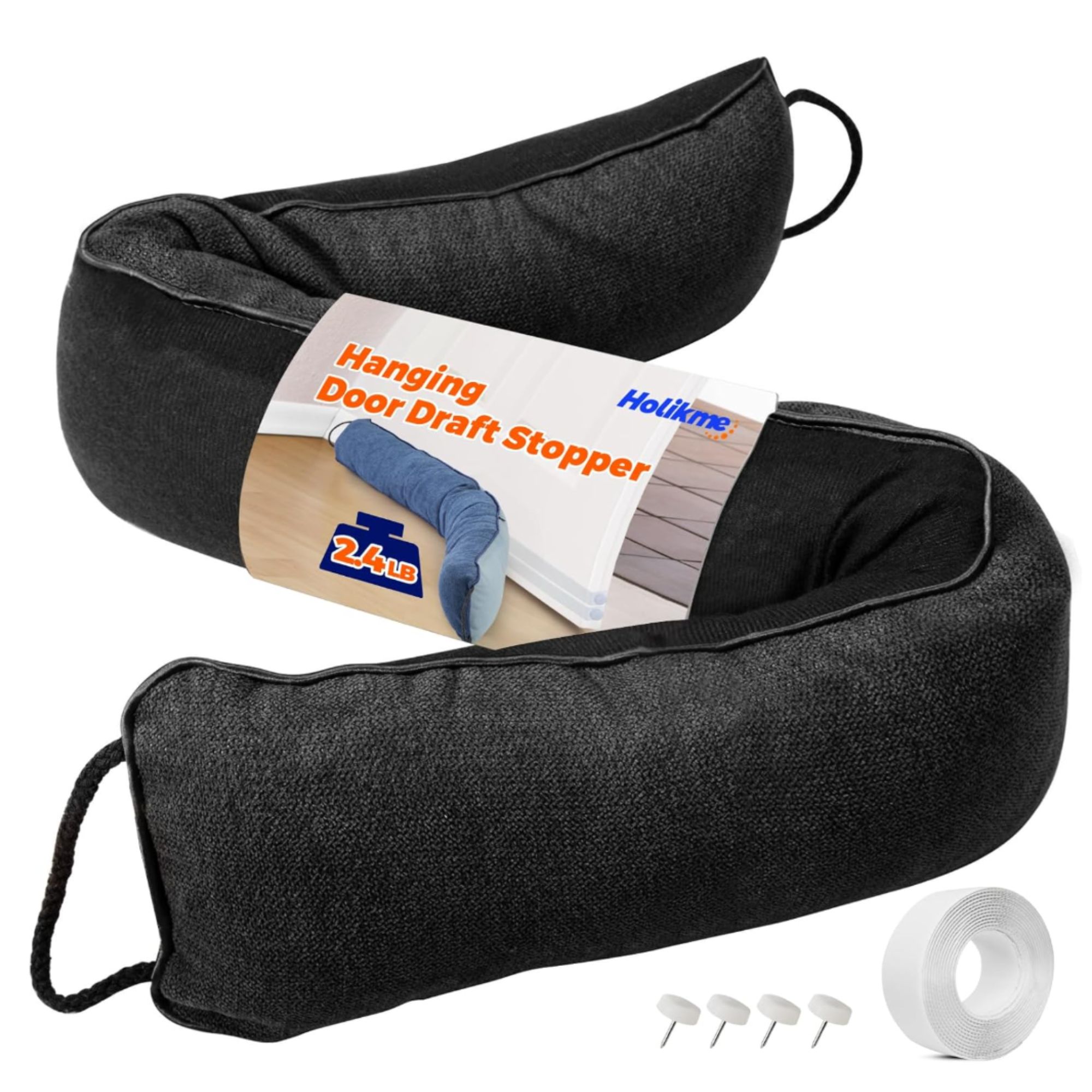
Stop hot air from escaping and cold air from leaking in with this weighted wedge draft stopper. It's perfect for stopping unwanted drafts beneath internal and external doors.
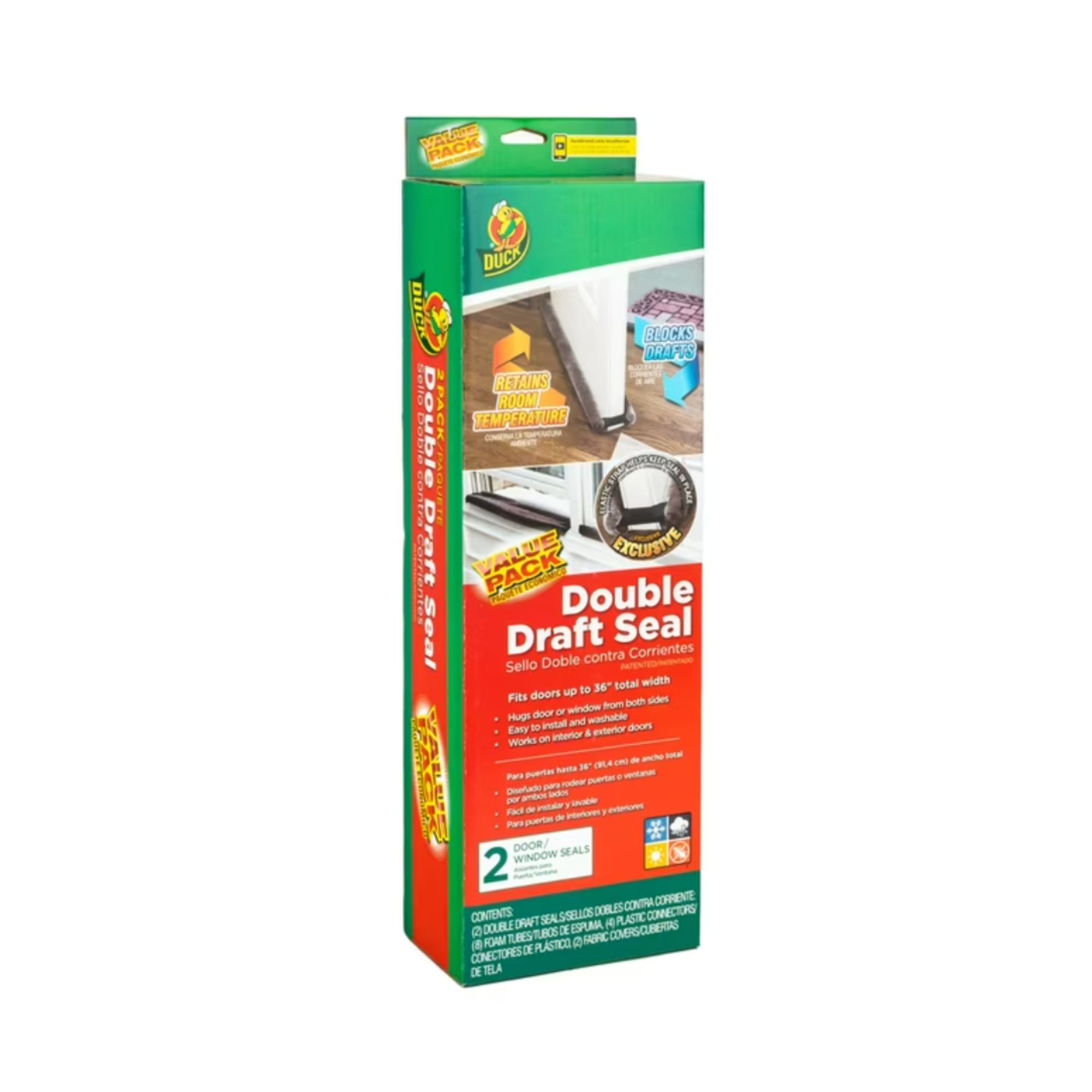
If you'd rather get a made-to-measure draft-proofing option, this easy-to-fit seal contains foam you can cut to size. Once you've done so, simply slide the double-sided seal on and let the product work its magic.
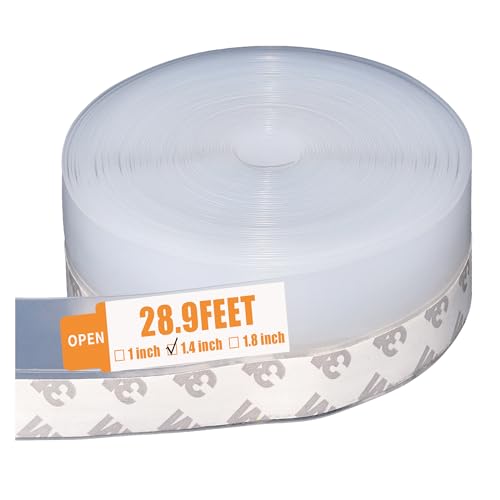
Made from high-quality silicone, this flexible, resilient, and super-durable strip will make drafts a thing of the past. Plus, because it's transparent, you won't even notice that this weather stripping has been stuck to the bottom of sliding windows or doors.
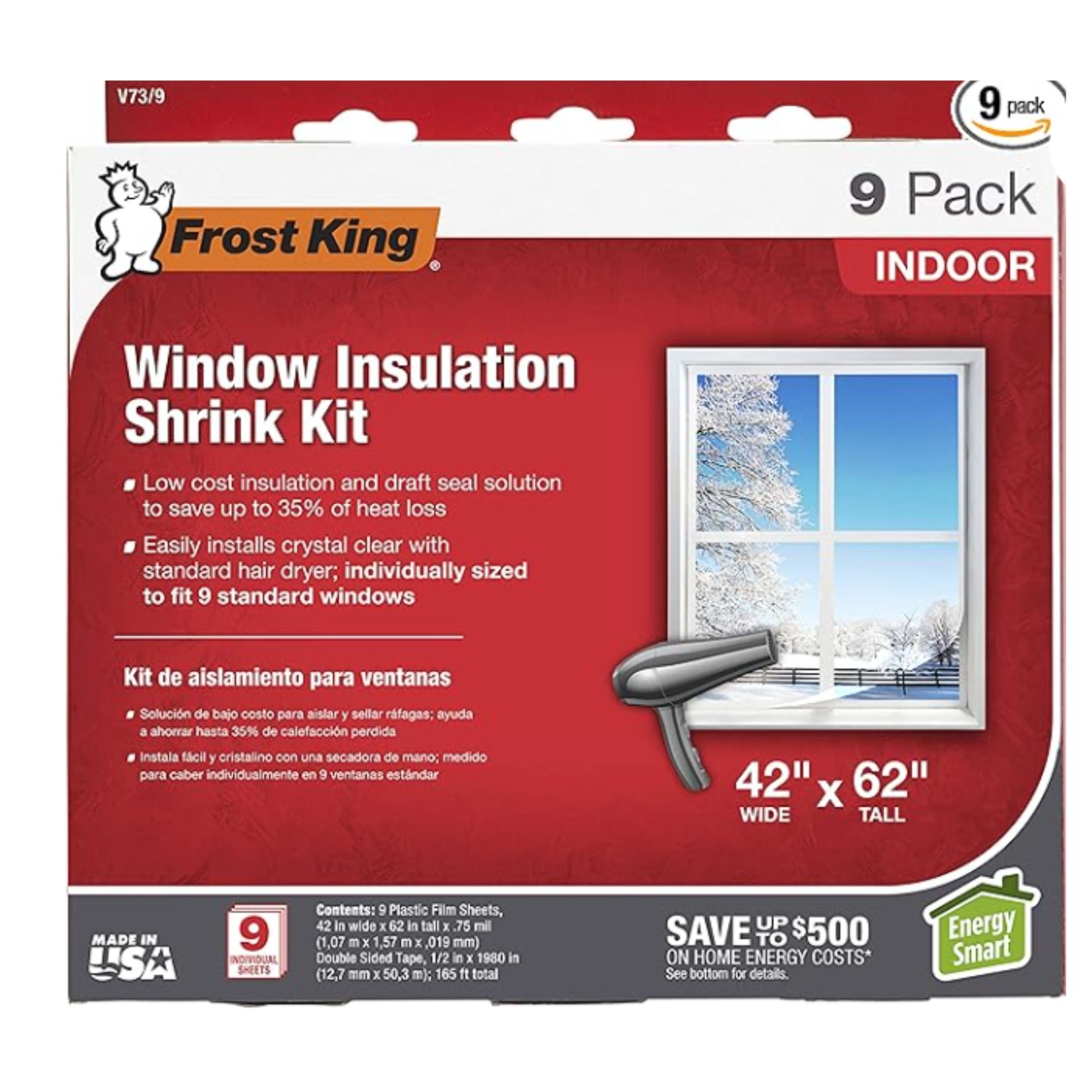
If you're wondering do window insulation kits work, you're in luck. Most HVAC pros agree that, if fitted properly, window insulation kits, like this Frost King Shrink Window Kits from Amazon, work hard to weatherproof your windows and reduce draft by around 35%.
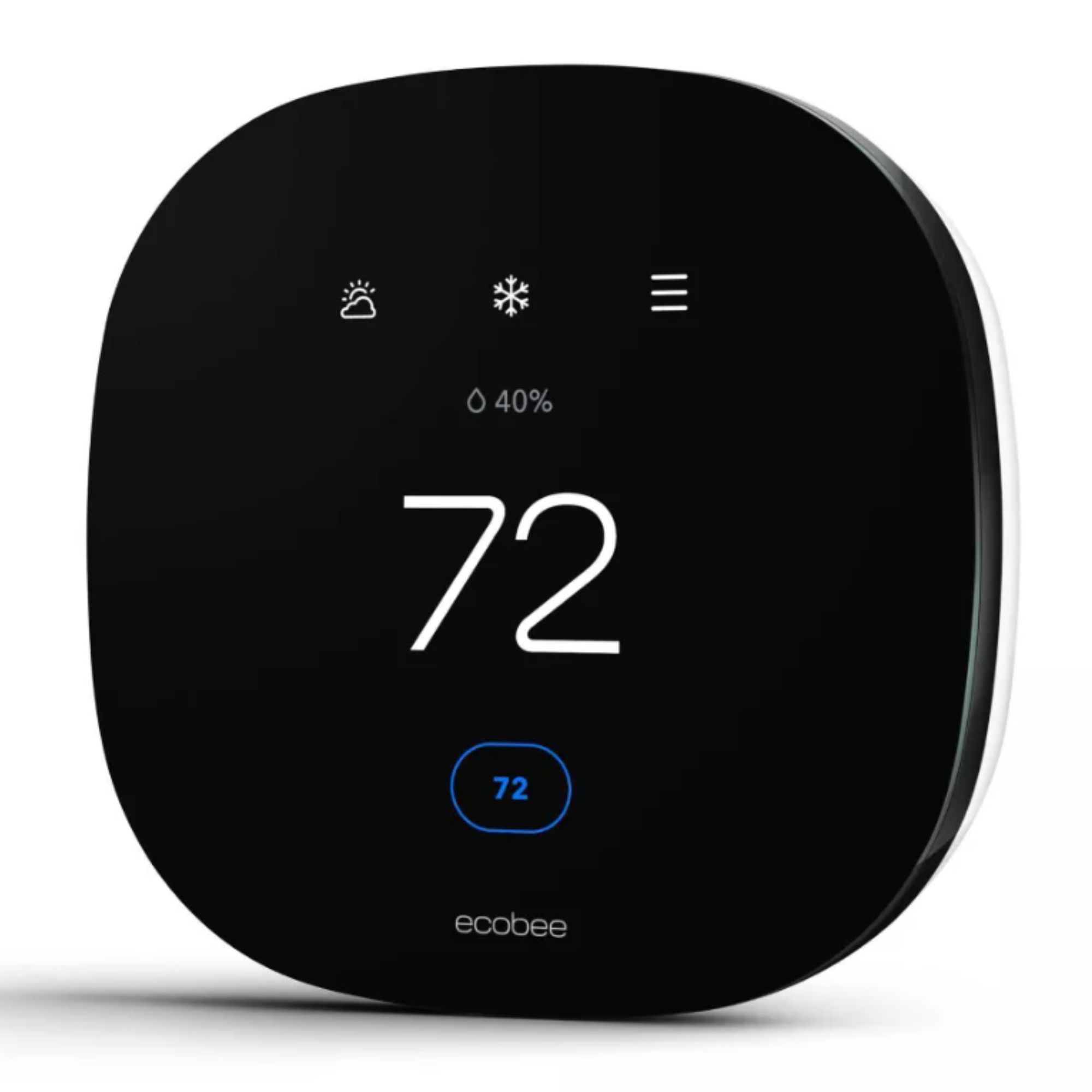
Smart-looking, sleek, and able to send you an alert if there is a sudden change, like a temperature drop that could lead to frozen pipes, this five-star-rated touchscreen thermostat is a must-have for tech-loving homes.
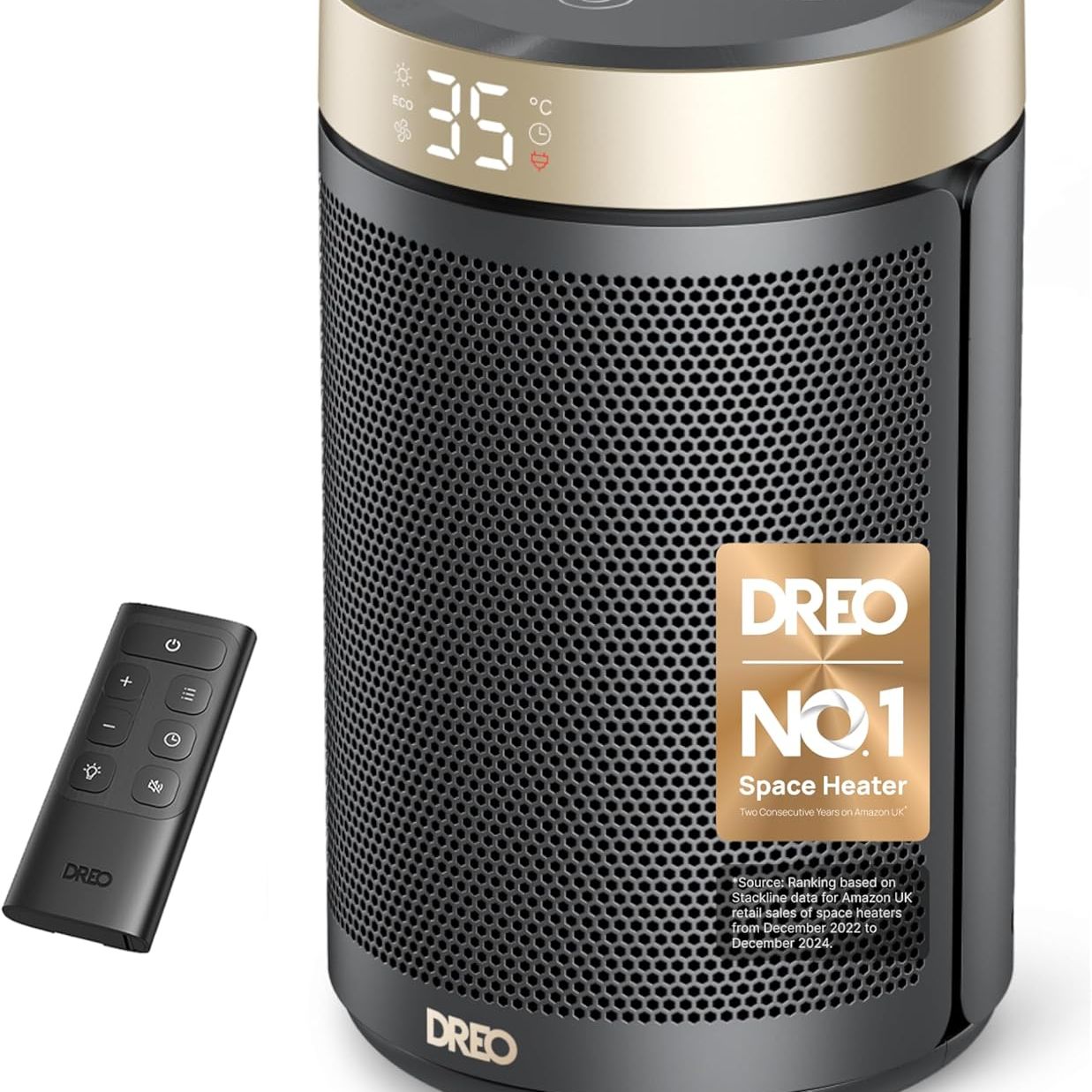
This bestselling indoor heater delivers powerful heat for its small size. With several safety features, such as a child lock and flame resistance, it's safe to use in any room. Use on level surfaces only, keep clear of drapes, and never leave unattended.
FAQs
Is it best to keep bedroom doors open or closed during winter?
When it comes to learning how to keep your house warm during the winter, the question of whether to keep your interior doors open or shut has long been debated. But according to experts, if you're trying to allow for balanced air flow and heat distribution throughout your home, leaving them open is key.
'Air mixing is essential for maintaining comfort,' says HVAC pro Marco. 'Keeping doors open allows heated air to circulate more freely throughout your home, reducing temperature and pressure imbalances. Open doors also help your HVAC system's return air process by making it easier for air to flow back into the system without obstructions, ensuring efficient operation and consistent comfort.'
That said, if you're using a space heater to stay warm during an outage, or for a boost where you're sitting, then keeping the door to that room closed while using it is a good idea to help retain heat.
Meet the Experts

Simon Bernath has been working in and covering the HVAC industry for more than 10 years. After working for a local heating and air conditioning contractor in Ontario, Canada, Simon is now the founder and CEO of FurnacePrices.ca – which is a website dedicated to creating information to help homeowners better understand their heating and air conditioning needs.

Marco Radocaj is an HVAC expert with qualifications in Manual J, Manual S, and Manual D – which is the recognized standard for producing HVAC design and installation, as well as the Environmental Protection Agency's mandatory Refrigeration Certification. Before founding Balance HVAC, Marco served as the vice president of building performance at a high-end estate management, renovation and construction company.
Now you’ve learned about all of the things making your heating work harder, learn how to prepare your house for cold weather and how many hours a day your heating should be on for maximum efficiency.

Punteha was editor of Real Homes before joining Homes and Gardens. She has written and edited wellbeing, lifestyle, and consumer pieces for the national press for 17 years, working across print and digital newspapers and magazines. She’s a Sunday Times bestselling ghostwriter, former BBC Good Food columnist and founding editor of independent magazine, lacunavoices.com. Punteha loves keeping her home clean, has tested and reviewed the latest robot vacuums and video doorbells, enjoys cooking, DIY, decluttering and spending weekends improving her newly-built home. Punteha is disabled and in chronic pain, so small, paced projects that bring big impact and make her household run smoothly are her focus.
- Rebecca ShepherdContributing editor